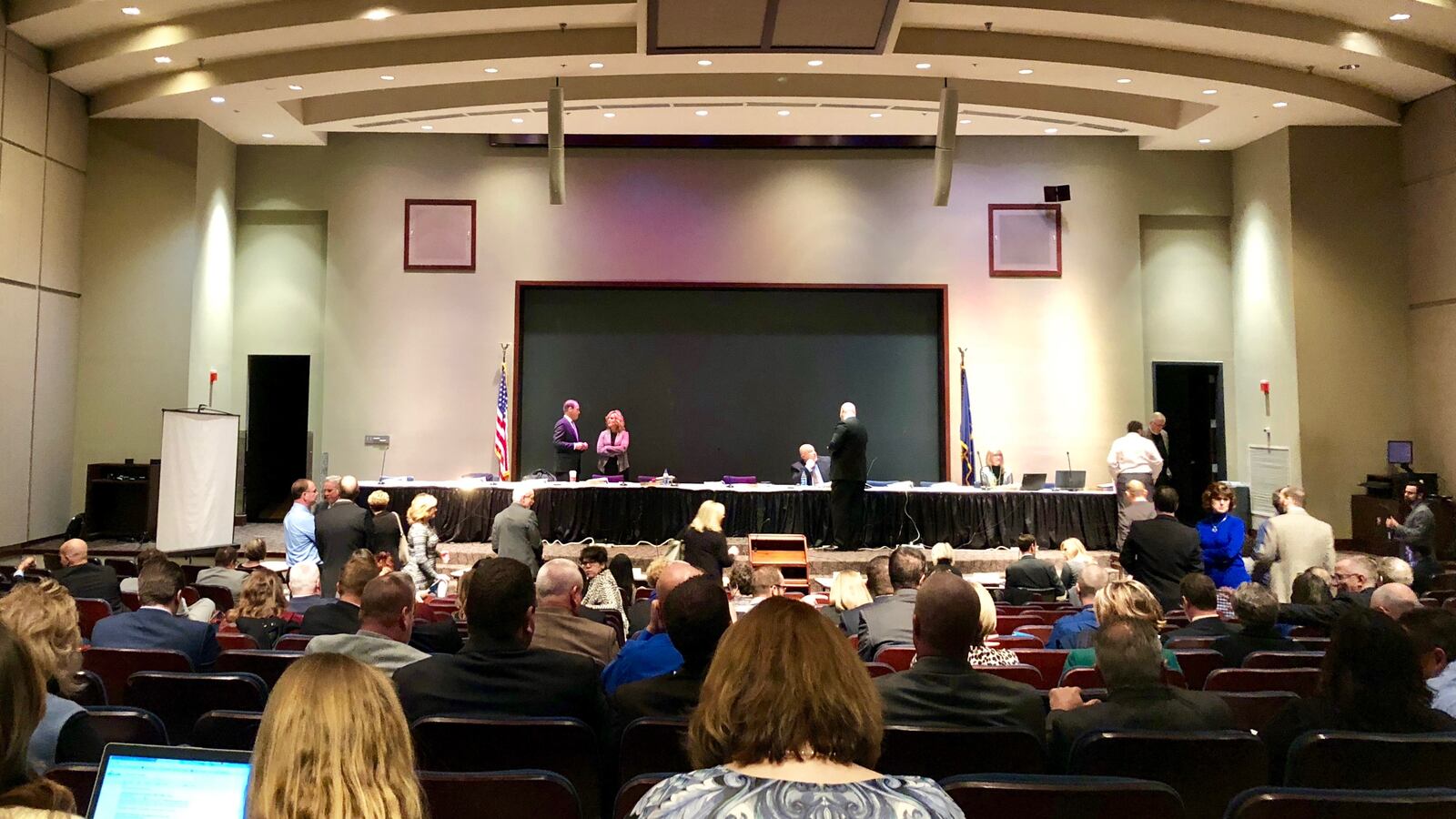One day before Indiana education officials are set to vote on a plan that would overhaul the state’s high school graduation requirements, many educators and parents from across the state spoke out strongly against it.
The “graduation pathways” plan has attracted concerns from principals and district leaders since a state committee began developing it in August. The goal was to create a system that would ensure students are ready for life after high school, but the resulting recommendations are complex, and many don’t see how they differ from the state’s existing diploma structure or serve students with learning challenges.
Under the plan, not only would students need to meet diploma requirements, but they would also have to satisfy additional criteria in most cases, which could be an exam, completing a certain number of advanced courses or gaining credit for internships.
Read: 6 things to know before Indiana officials vote on new high school graduation rules
A vote is expected on Wednesday. On Tuesday, the Indiana State Board of Education held a work session to review the final proposal. During an hour of public comment, a couple dozen people spoke, all but one — Ivy Tech Community College President Sue Ellsperman — voicing disapproval for the plan.
Parents, principals, teachers, superintendents and education advocates who spoke relayed a number of issues they had with the plan. Their comments, as well as more than 300 other emails the Indiana Department of Education received on the pathways, boiled down to five main areas of concern: cost, how schools would track the pathways, how the pathways would work for students with special needs, how the pathways committee would address diploma changes, and what options were available for students who weren’t planning to attend college.
Here’s a collection of comments from Tuesday’s meeting. The state board will meet at 9 a.m. Wednesday, when there will be more time for public comment before an expected vote.
Shara Swift, a parent from Fort Wayne. Swift said her son, who has learning disabilities, is already working hard to achieve current diploma requirements. She worries the vague, test-focused pathways plan is one more burden for her family.
“He is progressing and he is succeeding, but it takes a tireless amount of effort on his part and on the part of us as a family,” she said.
“Further testing and nebulous and undefined requirements will only set him up for failure,” she said. “In my view, I can discern no clear pathways for students who struggle like my son.”
Randy Harris, Huntington County superintendent. Harris echoed Swift’s concerns about students with special needs, and brought up a frequent criticism of the pathways: The state already has four diplomas with detailed requirements.
“I am really concerned … about the students with (Individualized Education Plans), those students who give everything they have every day to climb the steps that we put in front of them to get that high school diploma.
“If they don’t get that high school diploma, I don’t know what they are going to do with the rest of their lives. The employers won’t even talk to them without that diploma. We are punishing them for all those high efforts that they give with the maximum of their ability.
“We have one pathway already, called a high school diploma.”
Brian Knight, principal at Southport High School in Perry Township. Knight, like many of Tuesday’s speakers, called for more attention to be placed on how pathways would play out for special education students. While the pathways committee heard many comments during their meetings about students with special needs, little actual discussion was had on ways to make pathways work for them.
“I struggle to figure out which pathway meets the needs of the students who need us the most.”
Jennifer Ledger, a parent from Fort Wayne. Ledger’s son has a chronic illness that results in learning problems requiring him to take extra classes. She said she can’t see how he would even have time for more graduation requirements. Under the proposed plan, he wouldn’t be able to graduate, she said.
“He is more than a piece of paper that says certificate of attendance … Can you honestly look him in the eye and say, ‘You did not graduate from high school”?
“Under your pathway recommendations,” she said, “I wouldn’t be a graduate from high school.”
Wendy Robinson, Fort Wayne Schools superintendent. Robinson summed up most of the comments succinctly: Wait. Just about every speaker asked the state board to delay their vote until more information was available.
“I’m amazed that we can agree on one thing,” she said. “Everybody is telling you the same thing. I want to echo: Pause. I don’t think anybody today told you to throw everything away. We all want rigor.”
Find all of Chalkbeat’s graduation pathways coverage here.

